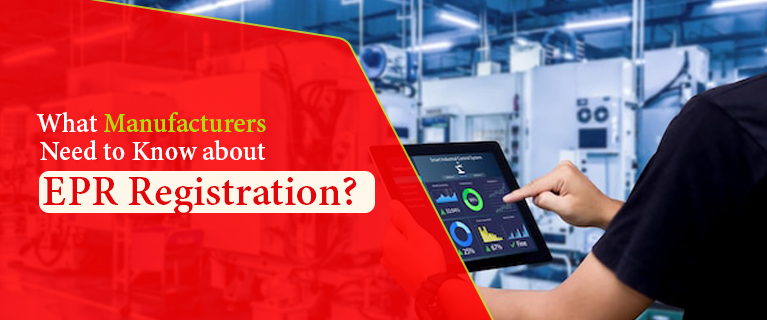Why Is EPR Certification Important In India?
A crucial framework known as extended producer responsibility (EPR) makes sure that producers are held responsible for the whole life cycle of their products, including their disposal. An EPR certificate encourages companies to develop their products with the environment in mind by transferring waste management duty from the government to the producers. The significance of EPR certification in India has never been more vital. India produces a lot of rubbish due to its large population of around 1.3 billion people. The importance of EPR Certification in India, its current situation, and the role of stakeholders in its effective implementation are all covered in this article.
Waste Management System in India
India's existing waste management system is deficient, and it has serious negative effects on the environment. Municipal authorities are in charge of waste collection and transportation, although informal waste collectors or landfills often handle the waste's final disposal. While garbage disposal is usually ignored, waste management is primarily concerned with the collection and transportation of waste. Water bodies have been contaminated as a result, and hazardous gases like methane, a potent greenhouse gas, have been released into the atmosphere.
Extended Producer Responsibility in India
EPR is governed by law in India, with the Ministry of Environment, Forests, and Climate Change, serving as the main agency in charge of carrying it out. The framework promotes the use of sustainable and eco-friendly products and attempts to ensure that manufacturers are held accountable for the entire lifecycle of their products. EPR Certification has many advantages, including lowering waste, raising recycling rates, and establishing a circular economy.
Implementation of EPR in India
Due to a number of issues, including a lack of awareness, lax enforcement, and poor infrastructure, implementing EPR Certification in India has been difficult. To address these issues, the Indian government has adopted a number of measures. To promote EPR Certification, for instance, the government has put up a number of policies and rules, such as the Plastic Waste Management Rules (2016). To raise awareness and implement EPR Certification, the government has also partnered with NGOs like Waste Warriors.
Role of Various Stakeholders in EPR Certification
A number of stakeholders play a significant role in effective deployment of EPR Certification. Producers must create items that are both recyclable and simple to discard. They must also be in charge of the collecting, transporting, and disposing of their products. Using sustainable and environmentally friendly practises like reducing, reusing, and recycling will help consumers do their part. In order to provide the resources and infrastructure required for garbage management, local governments are essential. Finally, NGOs may help by raising awareness, putting EPR Certification into practise, and keeping track of its development.
Read Also This - What is the cost of an EPR CertificateConclusion
EPR Certification is essential for India's sustainable growth. The nation produces enormous amounts of waste, and without effective waste management, the environmental damage will persist. To enable the effective implementation of EPR Certification, local governments, NGOs, producers, and consumers must collaborate. EPR Certification in India has bright future prospects, but for it to reach its full potential, there must be cooperation.




Comments
Post a Comment